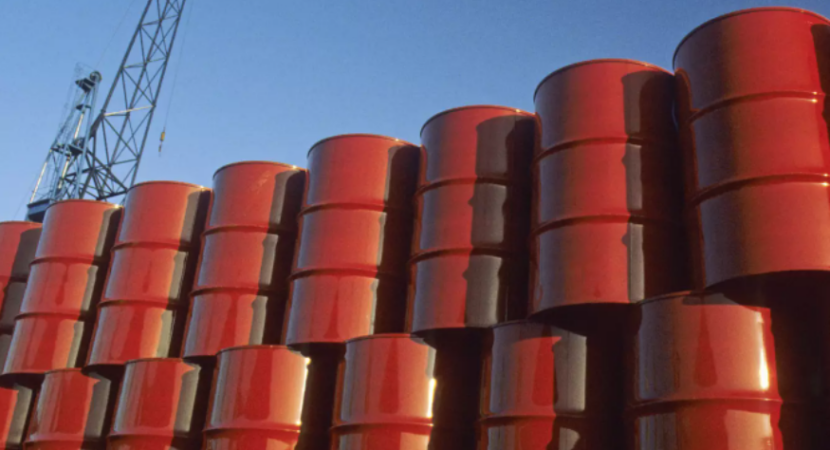
Since 2016, Petrobras has set prices for barrels of oil based on international values. This practice is applied throughout the production chain
Petrobras' International Parity Policy (IPP) was implemented in 2016, when it was presided over by Pedro Parente, under the management of former President of the Republic Michel Temer, who took office after supporting the impeachment of Dilma Rousseff. In practice, what is done is to dollarize the price of oil extracted, refined and consumed right here in Brazil, resulting in rising fuel prices derivatives or not of petroleum whenever the value of the product increases abroad.
The question we ask is the following: why does Petrobras not apply the PPI only to exported oil, instead of taxing all domestic production?
It turns out that this issue was well tied in the Bylaws of Petróleo Brasileiro SA or “Petrobras Bylaws” and, therefore, if this is not practiced, it is possible that members of the Board of Directors of the state-owned company will be civilly and criminally prosecuted for damages to the company.
An oil and gas specialist from Petrobras, consulted by the CPG Portal – Click Petróleo e Gás, recalls that attempts to freeze and subsidies, carried out by other administrations, caused billionaire losses to the state-owned company.
“If you do that, there is destruction of the value chain (ethanol producers, private refiners, fuel formulators, braskem, imports”, said the source, recalling that the policy of practically freezing fuel prices in 2014 cost almost R$ 100 billion , harming even ethanol at the time, as the percentage of alcohol in regular gasoline is 27% and, therefore, there must be market regulation.
Price policy with international parity can change in 2023?
In March of this year, the Federal Senate approved the 1.472 / 2021 Bill which changes the way fuel prices are calculated, in addition to creating a Stabilization Account. The author of the text, senator Rogério Carvalho (PT-SE), argues that the PPI has consequences for the entire economy and harms the most vulnerable population, in addition to that, Petrobras would have reduced its ability to refinement with the aim of increasing the presence of the private sector in the sector. The wording goes to the Chamber of Deputies.
PPI being part of electoral speeches
In this election year, the main pre-candidates for the Presidency of the Republic have criticized the constant increases in the prices of petroleum-derived fuels, drawing attention to what little was said by the general public, until then: Petrobras' International Parity Policy .
Earlier this month, Jair Bolsonaro classified Petrobras' profits as "rape". It turns out that in the first three months of this year alone, Petrobras earned US$ 9,405 billion (R$ 44,6 billion). That mega billing represents a jump of 3.000% compared to the same period in 2021 (gain of BRL 1,3 billion). The president of the state-owned company, José Mauro Ferreira Coelho, stated that the billionaire profit of the company has nothing to do with the readjustments in fuel prices.
Also pre-candidate, Lula has standardized his speeches when criticizing the PPI. The petista already promises to do what he calls “Brazilianizing” fuel prices. Ciro Gomes also goes along the same lines when he says that Petrobras is fleecing the Brazilian people and that part of the disclosed profits will go to minority shareholders, who are bankers in Brazil and abroad.
Brazilian oil export figures
Brazil produces about 3 million barrels of oil per day and exports around 1,4 million bpd, which represents more than 40% of extraction. Half of these exports go to powerful private companies such as Shell, Repsol, Toral and Galp.
Last year, Brazil exported 67.564.850 tons of oil (483 million barrels), being the third most sold Brazilian product abroad, behind only soy and iron ore.
Still in 2022, oil production in Brazil should start to increase and reach 78% growth by 2031, making the country reach fifth place among the countries that most export the product on the planet.
According to Comes Stat, the main countries to which Brazil exported the most oil in 2021 were: China (US$ 14,3 billion), USA (US$ 3,1 billion), India (US$ 2,2 billion), Chile (US$ 1,96 billion), Portugal ($1,63 billion), South Korea ($1,46 billion), Netherlands ($1,21 billion), Spain ($1,08 billion), Singapore (US$1,01 billion) and Malaysia (US$795 million).













Air Force F-16 fighters…
True friend, what they shot down were…
Air Force F-16 fighters…
I would like to know what planet you live on…
Air Force F-16 fighters…
Well... It's flying scrap... Typical...
They discover the third largest deposit…
That’s why all foreigners and NGOs…
Air Force F-16 fighters…
Which genocide are you talking about? Than…
In Brazil it is difficult for poor people, I…
Now thinking about whether it would be worth changing my Toyota…
God bless you for giving many opportunities…
I have a 1986, I don't sell it excellent...
I would like to work in Switzerland, I am an engineer…
Do not capitalize on the Zionist genocides.
Good afternoon, Mr Rafaela, it’s a pleasure to meet you…
Fantastic